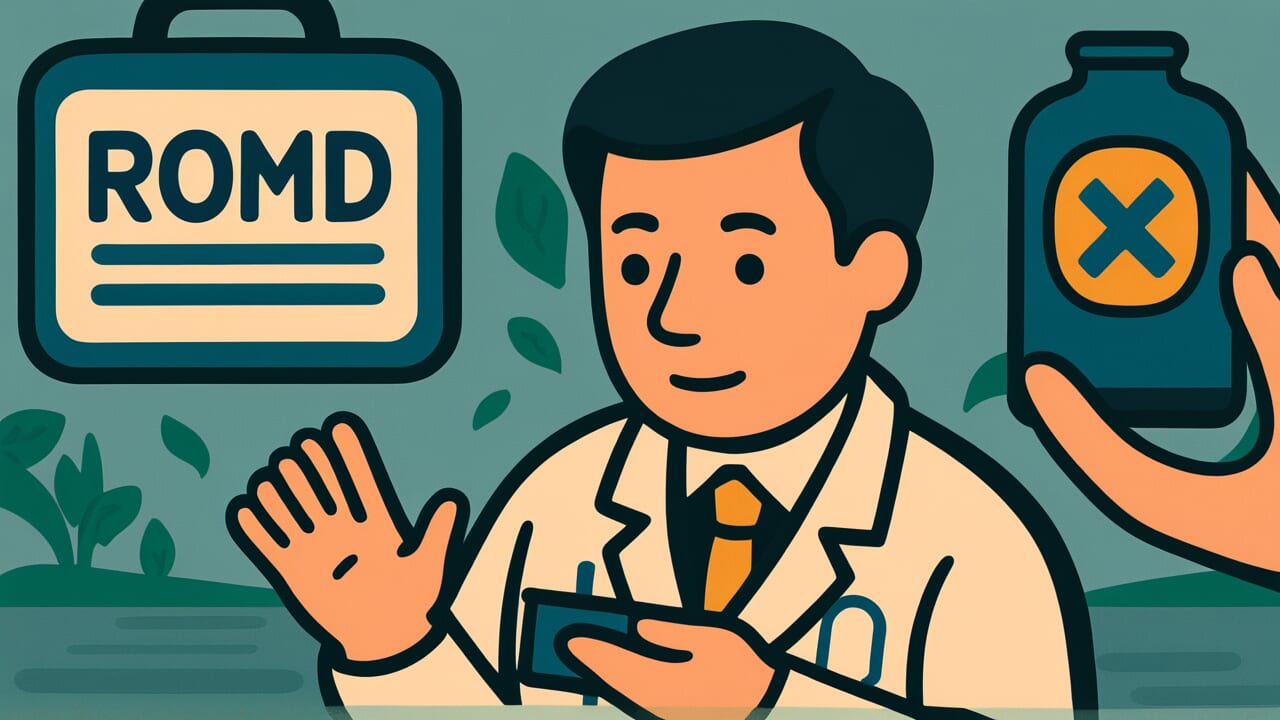How to Read “The medicine works where you can’t read the label”
Nōgaki no yomenu tokoro ni kikime ari
Meaning of “The medicine works where you can’t read the label”
This proverb means that things with highly technical and difficult explanations often turn out to be more effective.
It expresses a human psychological tendency. When medicine labels are so complex and full of technical terms that you can’t read them, they seem more authentic and effective.
The proverb points out a paradox. Difficult, incomprehensible explanations can inspire more trust and confidence than simple, clear ones.
Even today, we sometimes feel that complex terminology and explanations from experts signal genuine, deep knowledge.
This proverb captures that sharp insight into human psychology. When we can’t understand something, it can actually seem like proof of high quality and effectiveness.
Origin and Etymology
The exact first written appearance of this proverb is unclear. However, it likely emerged from common people’s culture during the Edo period.
“Nōgaki” originally referred to written instructions describing medicine’s effects and usage.
During the Edo period, medicine was precious. Chinese herbal medicines especially came with complex instruction labels.
However, most common people at that time couldn’t read. Even those who could read often couldn’t understand specialized characters or medical terminology.
Yet when they took the medicine, they often felt it worked. This was a curious phenomenon.
From this experience, an ironic observation was born. The harder the explanation was to understand, the better the medicine seemed to work.
This reflected common people’s practical wisdom. Highly technical explanations suggested authentic, effective products.
The expression also contains insight into human psychology. Difficult, authoritative explanations often gain people’s trust more easily than simple ones.
The tendency to see high expertise as proof of quality is a universal phenomenon. It continues even in modern times.
Usage Examples
- This health supplement has ingredient labels full of technical terms I can’t read at all. But “the medicine works where you can’t read the label,” so it seems promising.
- That professor’s paper is too difficult for me to understand. But “the medicine works where you can’t read the label,” so it must be excellent research.
Universal Wisdom
This proverb reflects a universal human psychology: trust in authority.
We tend to feel awe toward things so specialized we can’t understand them. We evaluate their value highly.
Why do people trust what they can’t understand? Because complexity seems like proof of expertise, and expertise seems like a guarantee of quality.
Things we can easily understand seem like something anyone could do. On the other hand, difficult things seem advanced, requiring years of training by specialists.
This psychology appears in all specialized fields: medicine, academics, technology. Patients trust doctors who explain with difficult medical terms.
People respect scientists who use complex equations. Not understanding becomes a source of reassurance. This is the paradox.
However, this proverb also contains irony. Truly excellent things don’t necessarily need to be incomprehensible.
Yet people find value in difficulty rather than clarity. Our ancestors sharply perceived this human trait.
Blind trust in what we can’t understand, and those who exploit it. This structure reveals an unchanging aspect of human society across time.
When AI Hears This
From an information theory perspective, this proverb captures the moment when “information purity” increases.
In Shannon’s information theory, when unnecessary information (noise) mixes with the intended message (signal), receivers can’t properly receive the information.
When you can’t read medicine labels, it seems like information deficiency. But actually, it’s the opposite.
Labels contain information like “possible side effects” and “results vary by individual.” This is accurate information.
However, in the patient’s mind, it generates anticipatory anxiety: “It might not work.” Information theory calls such extra interpretation by receivers “redundancy.”
In other words, psychological noise gets added to the original signal (the medicine’s chemical effect).
Placebo research provides interesting numbers. Even fake medicine shows symptom improvement in about 30 percent of people.
This is an effect created by the information “believing it’s medicine.” Conversely, people who read labels and become anxious show about 20 percent reduced effectiveness even with real medicine.
When patients can’t read labels, they purely sense only bodily changes. This is a state where redundancy is stripped from the information transmission path.
Only the essential signal of medicinal effect reaches them.
Lessons for Today
This proverb teaches us not to confuse “difficulty” with “value.”
Certainly, specialized and complex explanations often contain deep knowledge. However, truly excellent experts also have the ability to explain difficult things clearly.
Just because you can’t understand an explanation doesn’t necessarily mean it’s superior.
When you choose something, don’t be misled by complexity. Develop the ability to see the essence.
Don’t assume something is good just because the explanation is complex. Ask yourself: “Is this complexity truly necessary?” “Why can’t this be explained more clearly?”
At the same time, when you’re in a position to explain something, strive to maintain expertise while making it understandable.
Don’t obscure things with difficult words. An honest attitude in communication is the true mark of expertise.
The ability to see the essence beyond complexity—that’s the modern wisdom we can learn from this proverb.



Comments